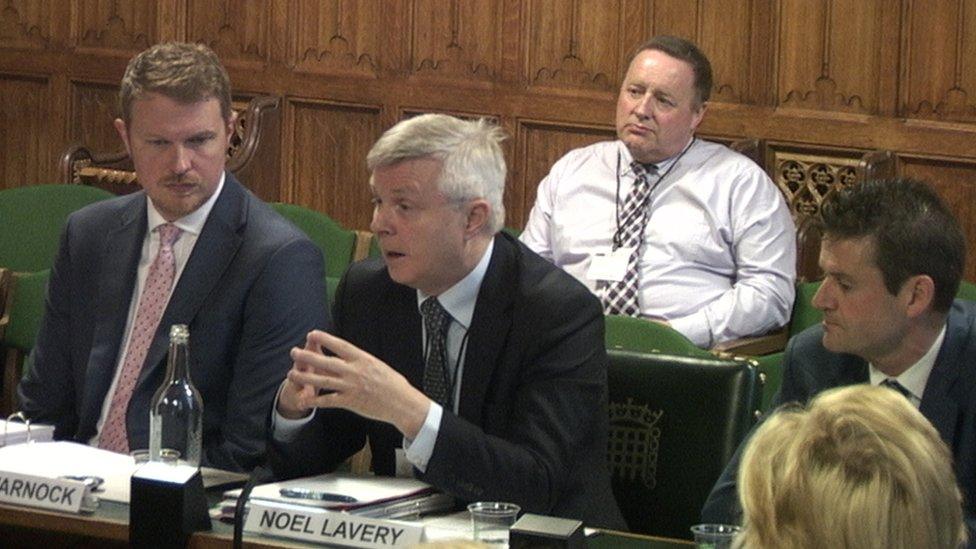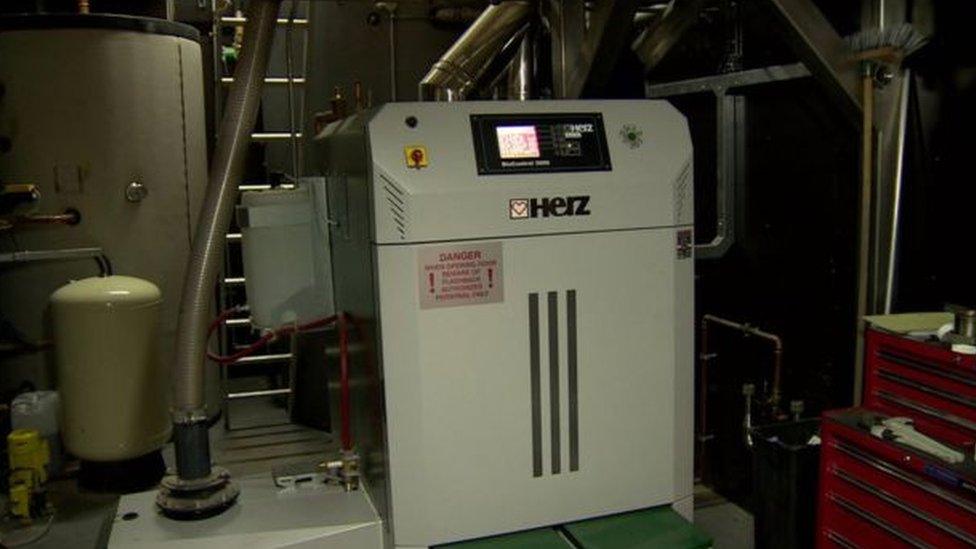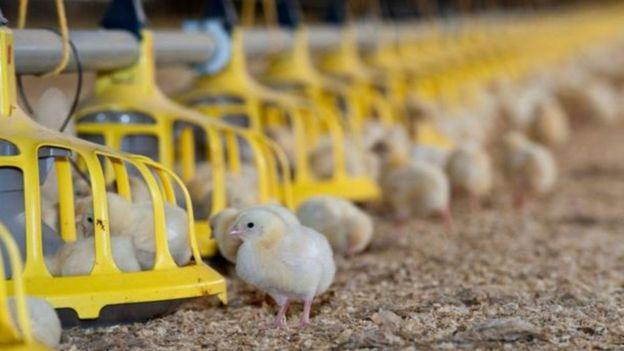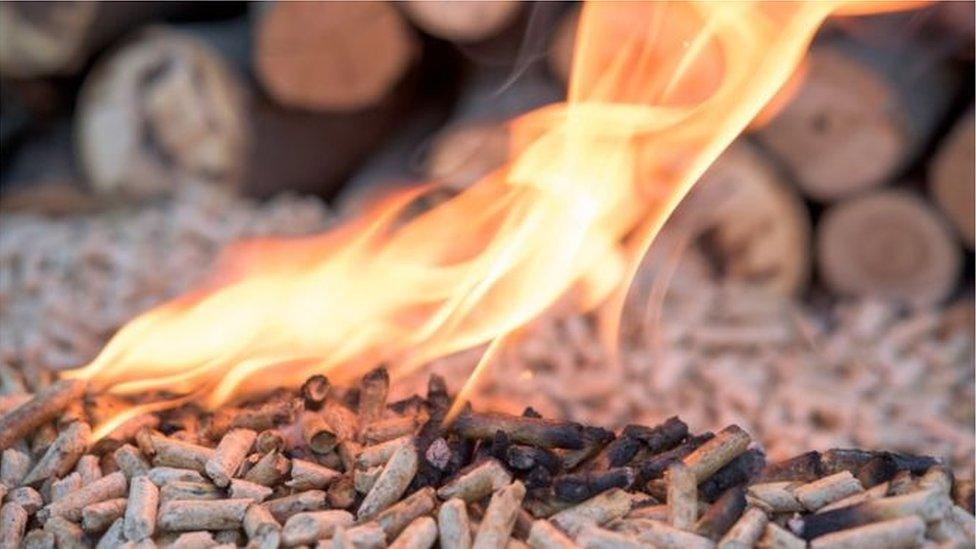RHI payments: Top civil servant defends cut
- Published

Noel Lavery is the top civil servant in the Economy Department
A senior civil servant has been defending deep cuts to RHI payments before a committee of MPs.
Reductions in payments, introduced in April, brought payments from the scheme down from £13,000 to just over £2,000 per boiler.
Northern Ireland's flawed Renewable Heat Initiative (RHI scheme) helped collapse the Stormont institutions.
Some businesses have multiple boilers and said they faced ruin due to the impact on cashflows.
But officials defended the move.
The NI Affairs Committee hearings follow complaints that the legislation, fast-tracked through Parliament, did not receive sufficient scrutiny.
Giving evidence to the committee on Wednesday, the top civil servant in the Economy Department, which introduced them, said they had been necessary.
Noel Lavery said there had been overcompensation and rates had to be reduced.
The scheme had to be compliant with EU rules on business support and the choice had been to shut it down, or bring in reduced payments, he said.
Mr Lavery said businesses which had bought boilers at £38,000 had already had payments of £55,000 and would be due a further £35,000 over the rest of the 20-year scheme.

There are about 2,100 boilers in the Northern Ireland RHI scheme
He accepted that at current rates there would be an underspend of the available Treasury budget, but he said it was not "free money" and he had to ensure proper use of taxpayers' cash.
The department's head of energy, Richard Rodgers, said biomass was still the cheapest fuel in Northern Ireland and firms thinking about switching back to fossil fuels risked "throwing the baby out with the bathwater".
North Down MP Lady Sylvia Hermon asked Mr Lavery whether he had any "compassion" for the difficult situations of people who had been in touch with her.
He said he was "concerned" about the pressure that some firms were under.
Mr Lavery said the department had intended to offer higher tariffs providing a 19% rate of return on investment, but the European Commission had insisted on a lower rate that stuck to the 12% it had approved.
'Production could move south'
MPs also focused on differences in support available between the Northern Ireland scheme and ones in Great Britain and the Republic of Ireland.
They were told that a 99kw boiler in Britain could earn £5,300 where here the maximum subsidy available here was £2,200 with the difference explained by variable costs in the boilers and the fuel price.
MPs also pressed for detail on why support levels in the Republic of Ireland appeared to be higher, improving the competitiveness of farms there and creating the risk that poultry production "could move south".
Mr Rodgers said with two poultry farms on either side of the border, the one on the southern side using a 99kw boiler, would be around £3,000 a year better off.
The officials said the authorities in Dublin had factored in a much higher boiler price when setting their tariff, something they did not understand.
Ian Paisley pressed them to flag the issue to Europe and Mr Lavery said he would do so if officials found "material concerns" about its impact on competitiveness.
- Published29 April 2019

- Published1 May 2019
